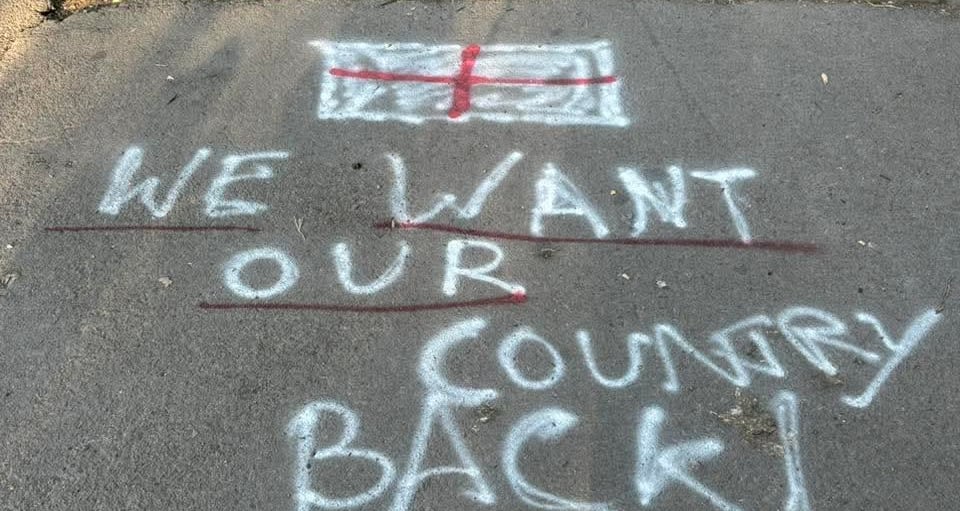Red paint, roundabouts, and Freedom of Speech
8/23/20253 min read


Two bizarre things happened this week. First, overnight several mini roundabouts in our town were daubed in red paint. Second, my seemingly innocuous decision to call it what it was — vandalism — managed to enrage more than a thousand people.
You’d need to be living under a log (or at least off social media) not to be aware of this “movement” at the moment. So, let me be clear. Am I unpatriotic? No. Do I feel proud to be British? Yes — most of the time (though not this week, and certainly didn't on the day we walked away from what was arguably the greatest example of international co-operation the world will ever see). Do I think we have long-standing challenges around immigration that need urgently addressing? Absolutely. But do I think vandalising public infrastructure is the right first step to addressing those challenges? Not a chance. My point is: I support change — when it’s approached in the right way.
Many of the more vitriolic comments in response to me leaned on Pride events as their defence. Their logic: “they painted the roads and flew flags, so we will too.” The difference is Pride organisers sought permission and used chalk, not paint. If this St George’s flag group had applied for permission, who knows — I might even have supported it. Instead, their actions have left taxpayers with a bill for every roundabout to make them legally safe again — money the county council does not have.
Another misconception in the comments was about the council. Firstly, I do not “speak for” the town council. Councillors are not amongst the 80ish employees of the council — we’re elected residents representing our community, suggesting ideas and scrutinising decisions made by professional officers. Our opinions are our own, and ideally also those of our residents. Secondly, this vandalism had nothing to do with the town council anyway. The roundabouts belong to Wiltshire Council, the unitary authority, and they’ll now need to find thousands of unbudgeted pounds to restore them. But that could even mean less money for the town council further down the line.
I’m proud to be British when I see people of all backgrounds coming together, when someone is lifted up and supported to reach their potential regardless of where they’ve come from, when someone can sleep easy knowing that — no matter their bank balance — if they fall ill, they’ll be cared for. I feel pride when we show moral courage on the international stage. Personally, I don’t attach that sense of pride to a flag. To me, a flag is useful on the back of a ship, in sport, or when scoring nil points at Eurovision. But I absolutely respect those who see it differently, especially those with an armed forces background.
What troubled me most this week wasn’t the paint, but the reaction. I was one of the few willing to publicly say it wasn’t okay — and by the end of the day I was googling home security cameras. Those involved in this movement in Birmingham, interviewed on national news that night, insisted their campaign wasn’t political, instead about unity and togetherness, and that they wanted to reclaim the flag from the far right. But if that’s true, why the "be proud or fuck off" hostility towards me? Isn’t part of raising the colours message about protecting freedom of speech? The reality is, if people feel too intimidated to speak out, to balance the debate, then we end up with only one voice being heard. And that’s not freedom of speech — it’s the opposite.
Some suggested I should have kept my head down, said nothing. But I wasn’t quiet about injustice or issues before I was elected, and I don’t intend to start now. People expect leaders to stand for something — to celebrate the good and call out the bad, whether everyone agrees with them or not. Because if the job is just to stay silent and invisible, then what really is the point?